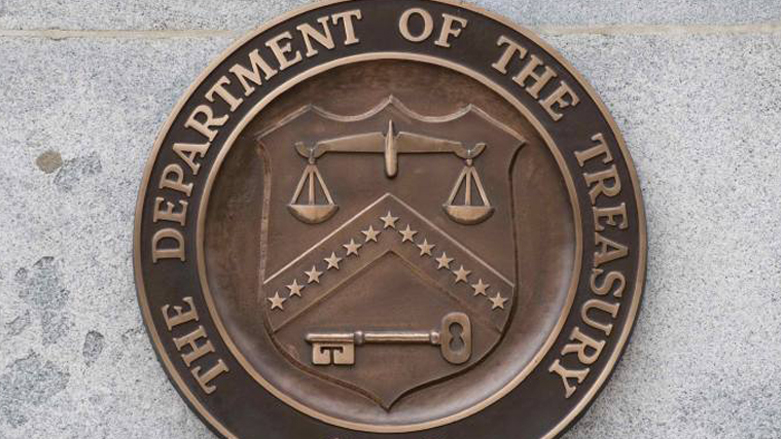US sanctions Qods Force smuggling network linked to senior Russian officials

WASHINGTON DC (Kurdistan 24) – The US announced sanctions against a newly identified oil smuggling network that helps fund the Qods Force of Iran’s Islamic Revolutionary Guard Corps (IRGC-QF) on Wednesday.
Notably, the Treasury Department announcement, for the first time, linked such a network to senior Russian officials, stating that this oil smuggling network is “backed by senior levels” in the Russian government and state-run economic enterprises.
In addition, the Treasury Department announcement identifies a Turkish network involved in money laundering—as well as terrorism—on behalf of the IRGC-QF.
Contravenes Thinking of 1990s after End of Soviet Union
Following the collapse of the Soviet Union in August 1991, the US became the world’s only superpower. The concept (which was quite self-serving) followed that all reasonable parties would accommodate America’s dominance.
In this thinking—which was strongly promoted by Israel and was a key premise of the Arab-Israeli “peace process,” the focus of the Clinton administration in the Middle East throughout its eight years in office—a sharp division existed between rational, secular actors and irrational, religious extremists.
The former were, in the parlance of the Israeli government, “partners for peace,” while the latter were the “enemies of peace.” Although Israel was the source of such terminology and thinking, Clinton administration officials spoke that way as well.
Yet it was a false and misleading distinction, born of a deep longing for peace and normality in the Jewish state. But some thirty years later, it is clear that the Soviet collapse did not usher in a new age of brotherhood and amity in the Middle East.
Indeed, as Russia’s assault on Ukraine has shown, the collapse of the Soviet Union did not usher in a new age of peace and harmony even in Europe—despite widespread expectations in Western countries to the contrary.
Nonetheless, the notion that a radical breach exists between “secular” and “Islamic” parties, such that the two cannot work together, persists in much Western thinking about the region. Yet, as Wednesday’s announcement suggests, that is simply not true.
The Oil Smuggling Network—tied to Russia
According to Wednesday’s announcement, the sanctioned oil smuggling network “has facilitated the sale of hundreds of millions of dollars’ worth of Iranian oil for both the IRGC-QF and Hizbollah.”
Two Iranians lead the network: an IRGC-QF official, whom the US has already designated for sanctions, Behnam Shahryari, and a former IRGC-QF official, who, similarly, has also been sanctioned already, Rostam Ghasemi.
The two Iranians are “backed by senior levels of the Russian Federation government and state-run economic organs,” the Treasury Department said.
That is a crucial, official US statement. Yet the mention of Russian individuals and entities in the sanctions announcement is limited. Perhaps, the US had reasons for not designating more Russians and their organizations? We do not know.
One Russian company was added to the sanctions list, as was a company in the United Arab Emirates that worked with Moscow.
The Russian company—RPP Limited Liability Company (RPP LLC)—was previously managed by an Afghan businessman, Kamaluddin Gulam Nabizada. Before turning to business, Nabizada had been Afghanistan’s Charge d’Affaires in Moscow.
Nabizada “raised funds for the IRGC-QF in coordination with senior levels of the Russian government and intelligence apparatus,” the Treasury Department said.
“Russia-based Nabizada has previously been linked to a corrupt scheme to defraud the Afghanistan-based Kabul Bank, resulting in the widespread loss of confidence in the Afghan banking sector and the loss of more than $800 million to the Afghan government,” the Treasury’s statement explained.
After Nabizada left RPP-LLC, he was replaced by another Afghan: Mihrab Suhrab Hamidi. Both men were sanctioned on Wednesday.
The UAE-based Zamanoil DMCC “also worked with the Russian government and Russian state-owned Rosneft,” the Treasury statement said. Zamanoil helped “to ship large quantities of Iranian oil to companies in Europe on behalf of the IRGC-QF.”
Turkish-Based IRGC-QF Money Laundering Network—associated with Iranian-backed Terrorism
The Treasury Department also identified a group of three Turkish nationals involved in money laundering for Iran: concealing the origins of the funds that the IRGC-QF earns through its illicit oil sales.
Two of the men were also involved in terrorism linked to the IRGC-QF.
The three men are Hakko Selcuk Sanli, Abdulhamid Celik, and Seyyid Cemal Gunduz.
The eldest of the three, the 62-year-old Sanli, “cofounded” Tawhid-Salam [Unity-(of God)-Peace], the Treasury Department statement explained, as it described Tawhid-Salam as “an IRGC-associated extremist organization.”
Tawhid-Salam, which was established in the mid-1990s, “received funding through close collaboration with IRGC-QF finance officials operating in Turkey,” it continued.
The 54-year-old Celik was also a member of Tawhid-Salam, which has been involved in several terrorist attacks. Both Sanli and Celik “served prison sentences in Turkey for their roles in the murder of two opponents of the Iranian government,” the Treasury Department said.
In 2011, Tawhid-Salam bombed the Israeli Consulate in Istanbul, wounding several people. In addition, it tried to bomb Israel’s embassy in Georgia, but the attempt was thwarted.
The Treasury Department identified Celik as one of those involved in the attack on Israel’s Istanbul Consulate.
Along with Gunduz, Sanli and Celik helped to hide over $6 million in Iranian petrochemical sales. They also helped conceal “the transfer and sale of millions of dollars’ worth of gold and its equivalent in cash on behalf of the IRGC-QF,” the Treasury’s statement explained.
The US sanctions were imposed on the three Turkish nationals for their role in facilitating Iran’s evasion of sanctions rather than their role in terrorist activities, even as some observers might view the latter actions as more serious.
